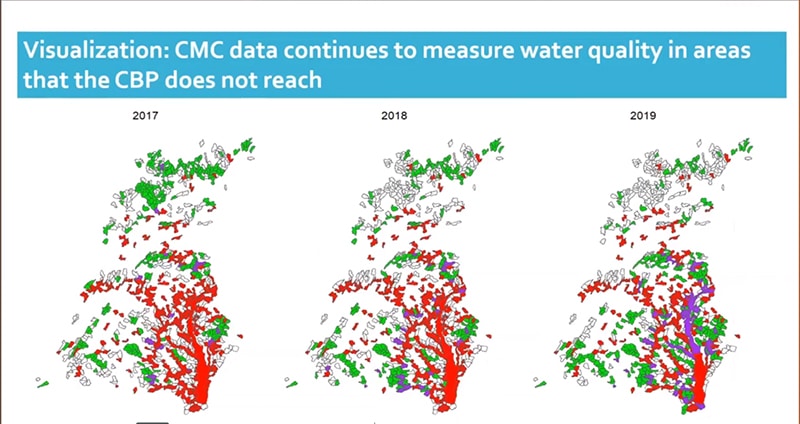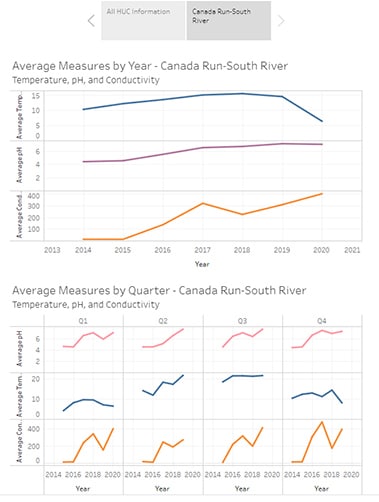Hack the Bay Winners Create New Ways to Use CMC Data

Hack the Bay, a hackathon led by Booz Allen Hamilton in partnership with the CMC, was a rousing success! 430 participants joined the hackathon from 37 countries, 172 cities, and 103 universities. Participants represented skills, positions, and levels of expertise across data science, web development, and human-centered design.
Hack the Bay was an entirely volunteer-led initiative to advance our understanding of the watershed. The hackathon helps the CMC reach it’s goals of analyzing and visualizing monitoring data. In doing so, participants helped prove the value of CMC’s data in informing watershed restoration policy. It helped CMC assess their own program for future expansion. And, the hackathon demonstrated the possibilities of introducing new machine learning methods into Bay pollution models. By shedding new light on one of the most studied watersheds in the world, Hack the Bay hopes this work can inspire more people to join the global citizen science movement and support local environmental and conservation efforts.
The incredible value of this previously un-analyzed, nontraditional water quality data was explored through four track challenges. Ultimately, four winning projects were selected as the top solutions in their categories and were showcased to a virtual audience on Sep. 29, 2020.
- Developing a Restoration Case Study – Hack the Bay
- Identifying Data Gaps – Tie for first place between Chesapeake Bayes and Richard and Lu, Dynamic Duo
- Modeling Water Pollution – Shore is Fun
- Designing a Water Quality Report Card – Honorable mentions for partial submissions, Water Quality ReportCard and Action-Oriented Report Card
The CMC is excited to share the winners’ solutions with the broader water monitoring community and pursue the integration of these outcomes into our program and website.

This image is a screen shot from the Challenge 1 winner, showcasing the relationship between temperature, pH and conductivity in the Canada Run watershed.
